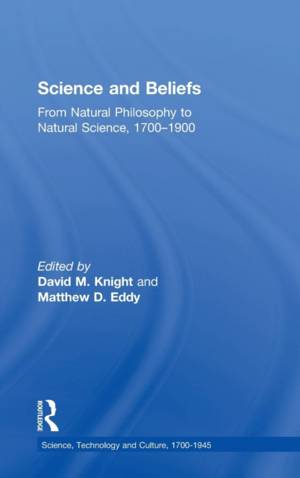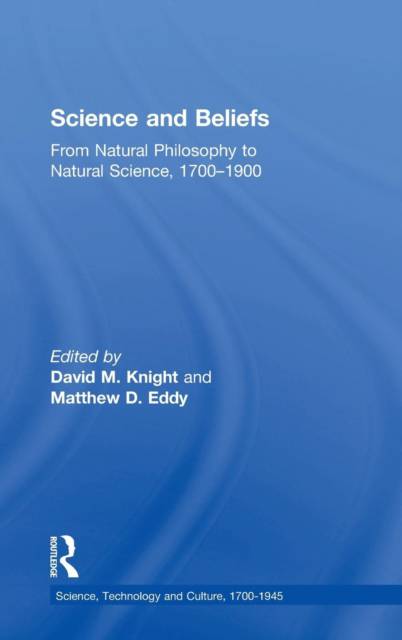
Door een staking bij bpost kan je online bestelling op dit moment iets langer onderweg zijn dan voorzien. Dringend iets nodig? Onze winkels ontvangen jou met open armen!
- Afhalen na 1 uur in een winkel met voorraad
- Gratis thuislevering in België vanaf € 30
- Ruim aanbod met 7 miljoen producten
Door een staking bij bpost kan je online bestelling op dit moment iets langer onderweg zijn dan voorzien. Dringend iets nodig? Onze winkels ontvangen jou met open armen!
- Afhalen na 1 uur in een winkel met voorraad
- Gratis thuislevering in België vanaf € 30
- Ruim aanbod met 7 miljoen producten
Zoeken
€ 274,95
+ 549 punten
Uitvoering
Omschrijving
The years between 1700 and 1900 witnessed a fundamental transition in attitudes towards science, as earlier concepts of natural philosophy were replaced with a more modern conception of science. This process was by no means a simple progression, and the changing attitudes to science was marked by bitter arguments and fundamental differences of opinion, many of which are still not entirely resolved today. Approaching the subject from a number of cultural angles, the essays in this volume explore the fluid relationship between science and belief during this crucial period, and help to trace the development of science as an independent field of study that did not look to religion to provide answers to the workings of the universe. Taking a broadly chronological approach, each essay in this book addresses a theme that helps illuminate these concerns and highlights how beliefs - both religious and secular - have impinged and influenced the scientific world. By addressing such key issues such as the ongoing debate between Christian fundamentalists and followers of Darwin, and the rise of 'respectable atheism', fascinating insights are provided that help to chart the ever-shifting discourse of science and beliefs.
Specificaties
Betrokkenen
- Auteur(s):
- Uitgeverij:
Inhoud
- Aantal bladzijden:
- 286
- Taal:
- Engels
- Reeks:
Eigenschappen
- Productcode (EAN):
- 9780754639961
- Verschijningsdatum:
- 11/07/2005
- Uitvoering:
- Hardcover
- Formaat:
- Genaaid
- Afmetingen:
- 156 mm x 234 mm
- Gewicht:
- 580 g

Alleen bij Standaard Boekhandel
+ 549 punten op je klantenkaart van Standaard Boekhandel
Beoordelingen
We publiceren alleen reviews die voldoen aan de voorwaarden voor reviews. Bekijk onze voorwaarden voor reviews.











